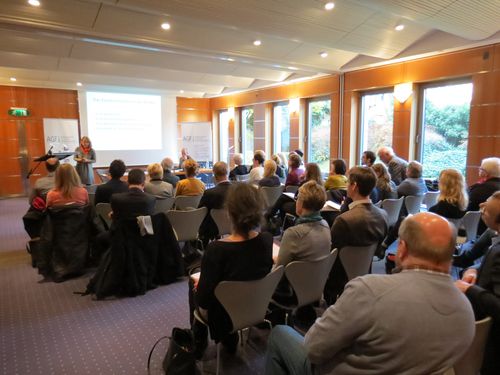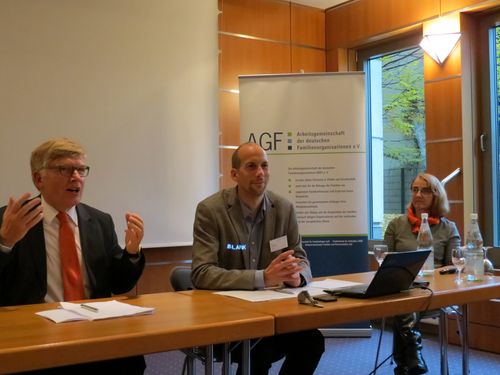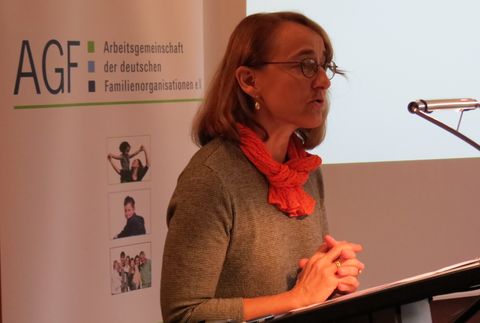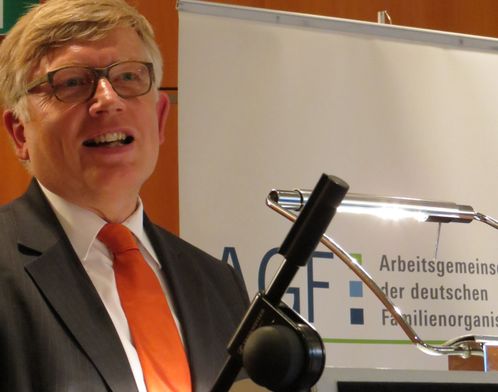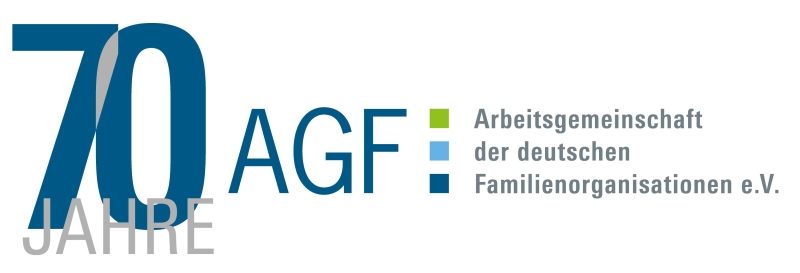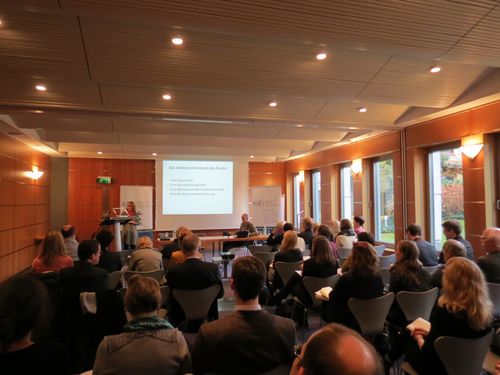
On 17th November, AGF invited to a discussion with Prof. Dr. Anne Lenze and Prof. Dr. Joachim Wieland about reforms for a just subsistence level for children. Under the title “Small adaptions or a radically new system – how do we achieve a just subsistence level?”, the two experts presented critical aspects as well as possible solutions. They presented their ideas and discussed them together and also with the particpants.
The first input came from the social law Professor Anne Lenze, from the University of Applied Sciences in Darmstadt. She pointed out the doubtful calculation of the subsistence level for children in the social law, which is in fact the source of all other definitions in the current system. Additionally, families would not even apply for many benefits designed to cover the subsistence level, because of complicated application forms. She rose the question, whether the social law is still a suitable starting point for changes of the monetary situation of children, regarding the general, rather reluctant attitude in German society. Therefore, her reform idea aimed more at supporting the families by relieving them from contributing to the social security system as far as the subsistence level is concernded.
Prof. Dr. Joachim Wieland, expert in constitutional and tax law at University Speyer, criticised the different results for low and high income earners in the current system. He advocated for granting the same amount to every child and to support children in low income families additionally. As a possible reform he suggested a universal, higher child benefit, which in his view would also be in line with the German constitution.
The following discussion among the two experts and the participants was full of details, but regularly also came back to the basic requirements and starting points for necessary reforms. Focal point of the discussion was the aim of a uniform substistence level, that was supposed to help particularly families with low incomes and to reduce the risk of poverty for children and their families.
Report:
Impressions
